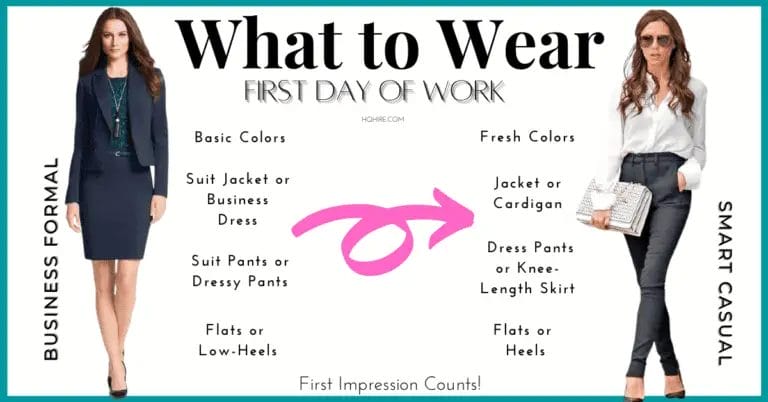Looking for a job can be stressful at the best of times, particularly when you are applying for employment in a competitive field.
If you have a gap in your employment record, finding a job can seem even more difficult, thus getting a professionally written resume will become even more important.
While there are many reasons why someone may have a gap in their employment history. Depending on how long you’ve been unemployed, some of these reasons for the career gap are more acceptable than others.
Acceptable Reasons for Gaps in Employment
An employment gap is any period of time when you are not working. They can be voluntary, involuntary, or by choice. Acceptable reasons for gaps in employment are reasons that are logical and relatable.
- Voluntary reasons for gaps in employment; having a baby, being a caregiver, taking time off to raise children, and taking care of a sick relative.
- Involuntary reasons for gaps in employment; relocation, job redundancy, and being fired.
- By Choice reasons for gaps in employment; being a stay-at-home parent, going back to school, and traveling around the world.
Candidates should be honest about their reasons for taking time off and be prepared to discuss how they kept up with industry changes during their break.
Knowing how to explain an employment gap and with the right attitude, gaps in employment can be seen as positive by potential employers.
1. You had a baby
Research released by the advocacy group Paid Leave US revealed that in the United States, one in four women return to work within two weeks of having a baby, probably due to the fear of discrimination.
Regardless, for many women, the gap is much longer. Some women take up to a year after giving birth before returning to work, while others wait until their children are school-aged.
And remember, you don’t miss out if you’re not the one who gave birth. Fathers and other partners are also entitled to time off work to care for a new baby.
This is perhaps the most common reason for a gap in employment.
2. You had medical issues
Your own medical history is personal and it can be difficult to open up about your past health struggles with a potential employer. However, if you could not work for a lengthy period, you should be honest with your employer.
It doesn’t matter whether you had a debilitating physical complaint, or suffered from a mental condition, you need to acknowledge the reason honestly.
When you live with a long-term illness or injury, you exhibit resilience and strength, both of which are enviable qualities for potential employers.
Make sure to highlight this in your interview.
You don’t need to go into specific details and if your potential employer makes you uncomfortable with the amount of information they need, they might not be the most sympathetic or understanding person to work with.
3. You had caring responsibilities
According to the Family Caregiver Alliance, there are approximately 43.5 million caregivers in the United States at any one time. This includes people who have provided unpaid care to an adult or child, or more than one. The common reason for caregiving is to look after people with an illness or disability like dementia.
It is not uncommon to take time out of paid work to provide care for a loved one or family member.
Highlight the skills that you were able to foster during this time in your life, such as dedication, planning, and dedication.
They are all traits that employers should look for in potential employees.
4. You were a stay-at-home parent
Many parents choose to stay at home to look after their children. Recruitment firm Hays found that 64% of female and 29% of male workers have taken a career break. For most women, and a smaller percentage of men, this was to take care of children.
When the women did return to the workforce, usually around the time their children started school, they often took up different roles than before they took time off.
5. You have been traveling
When young people take a significant chunk of time to travel, it is happily called a ‘gap year’. Although it is less common for more mature workers to take time off work for travel, it is not unheard of.
And remember, many employers will recognize that seasoned travelers bring many sought-after qualities to the workplace.
Extended travel can show:
- Independence
- Personal growth
- Organization
- Cultural awareness
- Calmness under pressure
Just remember to highlight these positive qualities in your interview, and reiterate that you don’t have any plans for long-term travel soon.
6. You took time off to relocate
Many people relocate to different towns, cities, and even countries during their working lives. It can be a massive undertaking, especially if you have a partner, children, and pets to consider.
A gap of one or even two months to relocate is not unheard of, so don’t be afraid to admit it when you’re asked to account for it in your interview.
7. You were a casualty of downsizing
If you lost your job through no fault of your own, you could confidently explain this to your potential employer. Remember, don’t dwell on the negatives. Turn the situation into a positive experience by explaining how you productively spent your time and persistently looked for work.
Ask yourself:
- What skills did I gain?
- What did I learn about myself?
- What might I do differently in the future?
And remember, emphasize that you are looking for the proper role, not just the next job that comes around.
8. You took up further education or training
According to figures published by the National Center for Educational Statistics, non-traditional students equate to almost half of all tertiary enrolments. This includes people who are financially independent of their parents, have dependents like children, attend school part-time, or work full-time.
Furthering your education, be it through a university degree, vocational training, or a diploma is a valid reason for a gap in your employment history.
Indeed, these statistics show that further education when you are an adult is an extremely common situation.
Just remember to demonstrate in your interview:
- Why you chose to pursue further education
- What you studied
- What you learned in the classroom
- What you learned beyond the classroom in terms of personal growth and fulfillment
9. You did volunteering
Approximately 63 million Americans – that’s around 25% of the adult population – give their time, energy, and talents to volunteer for the benefit of others.
Most people volunteer on their time off, particularly on the weekends, the evenings, and during their holidays.
However, if you are lucky enough to be able to support yourself while volunteering, it’s a good idea to be prepared to explain your situation.
As with the other examples I have provided in this article, it’s always a good idea to be prepared to address questions, even tricky ones, honestly and with a positive spin.
If you chose to volunteer during a time when you were looking for work, emphasize that you did so to feel content and fulfilled.
Read Also:
- How to Become a Remote Developer: Your Complete Guide to a Digital Nomad Career
- How to Become a Blockchain Developer: Complete Guide to a Career in Blockchain Technology
- How to Become a SQL Developer: Complete Guide to a Career in Database Development
- How to Become a Freelance Travel Writer (Step-by-Step Guide)
- How to Become a Remote Freelance Technical Writer (Step Guide)
Join over 11,000+ achievers who are committed to achieving their career goals!






